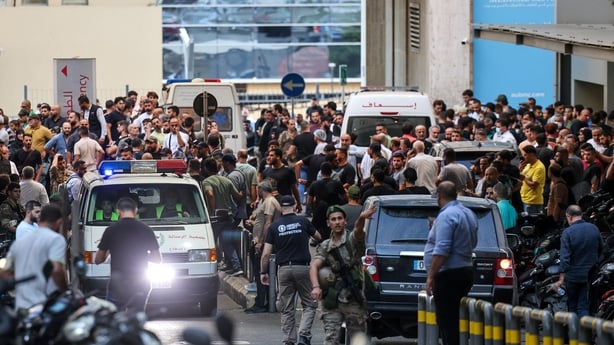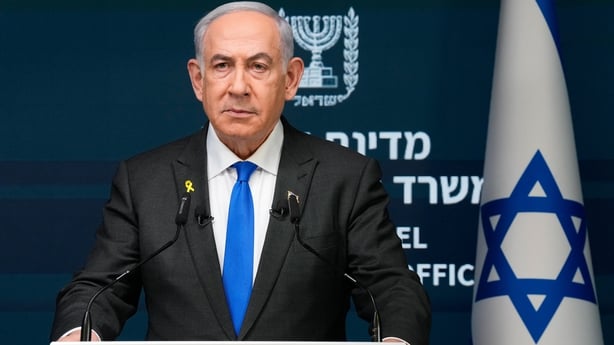Unceasing Tensions Persist Between Israel and Hezbollah
As Hezbollah’s chief, Hassan Nasrallah, stood before the camera for a televised address on Thursday, the unmistakable sound of Israeli jets roaring overhead delivered a stark warning.
This sonic disruption served not only to interrupt his speech but also to instill fear in many viewers across Lebanon, a message underscored by the previous week’s bombings targeting Hezbollah’s communications systems.
- Advertisement -
The blasts resulted in numerous fatalities, left countless individuals injured, and reverberated across the nation, pushing the ongoing conflict to yet another dangerous threshold.
While Israel has declined to confirm any responsibility for the detonation of Hezbollah’s communication devices, both Hezbollah and numerous international observers have come to the conclusion that these events likely stem from Israeli intelligence operations.
As one local from Tel Aviv remarked to Reuters following the initial explosions, “It’s a battle of our wits against their might,” expressing satisfaction that the conflict has come to a head with Hezbollah.
Such sustained and high-profile offensives have significantly tarnished Hezbollah’s reputation and effectiveness.

In a rare moment of candor, Nasrallah conceded during his address, “Undoubtedly, we have experienced a severe setback.”
However, even more setbacks were on the horizon.
The following Friday saw an Israeli air raid in southern Beirut, reportedly claiming the lives of over a dozen prominent Hezbollah members, including figures such as Ibrahim Aqil and Ahmed Wahbi.
As Israel’s military revels in the knowledge of having executed several precise strikes against Hezbollah, the broader strategic implications of these actions remain ambiguous.
Israeli Prime Minister Benjamin Netanyahu’s primary objective in the northern front appears to be neutralizing Hezbollah’s capacity for attack, thereby facilitating the safe return of tens of thousands of Israeli residents.
Since the escalation of hostilities on October 7, large regions on both the Israeli and Lebanese sides of the border have been largely evacuated, as skirmishes erupt daily between Hezbollah combatants and Israeli forces.
With Hezbollah openly promising retaliation for the week’s events, the timeline for restoring residents to their homes remains uncertain.
The ongoing turmoil suggests that without a resolution to the Gaza situation, peace in northern Israel feels increasingly elusive.

Over the past year, US Secretary of State Antony Blinken has traversed multiple Middle Eastern capitals advocating for a potential ceasefire, yet his efforts have often seemed in vain.
The week’s events highlighted this futility starkly as Secretary Blinken touched down in Egypt mere hours after the devastating blasts echoed across Lebanon.
Compounding the situation, a report from the Washington Post suggested that White House officials have come to terms with the unlikelihood, if not impossibility, of establishing a ceasefire before President Joe Biden’s term concludes in January.
While President Biden may have brushed off concerns about this, the fiercely competitive US presidential race might make Netanyahu reconsider whether to hold out for a new president after next year.
Neither Netanyahu nor Hamas exhibit any inclination toward reaching a peace agreement at this juncture.
Without even a fragile peace framework in place, de-escalation between Israel and Hezbollah appears improbable.
Speculation around a possibly weakened Hezbollah yearning for negotiations with Israel feels far-fetched, especially with the group’s fervent rhetoric of revenge and retribution echoing loudly.
The next pressing questions for both the region and those yearning for tranquility revolve around the timing and nature of Hezbollah’s promised vengeance.
